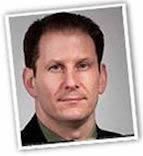Are There People Who Do Not Experience Imagery?
(And why does it matter?)
Nigel J. T. Thomas
Page 1
Source: http://www.imagery-imagination.com/non-im.htm
Psyche-D Post by Nigel Thomas, from Sat, 22 Dec 2001:
John Preston wrote:
I'm aware of the existence of a large amount of recent research, from a cognitivist point of view, on mental images. But does anyone know: (i) whether there are people who claim not to have mental images (not just visual images) at all?
If complete non-imagers (who are otherwise normally conscious and mentally competent) really could be proven to exist, that would be of great theoretical importance. At least since the time of Aristotle (see De Anima 431a 15-20), it has been very widely held (by both theoreticians and "the folk") that the experience of thinking consists largely or entirely in the vicissitudes of mental imagery, although it has long been clear, from consideration of the mental abilities of the congenitally or long-time blind, that it is not essential that any of this imagery be visual (even in the sighted other imagery modes may be more important than is commonly realized (Newton, 1982), and verbal imagery, in particular, plausibly plays a very large role in most human thinking (Paivio, 1971, 1986)). Of course, Cognitive Science has by now provided us with a rich set of alternative accounts of the underlying mechanisms of thought - of what might be going on under the surface, as it were - but it is not clear that even now we have any developed alternative account of the conscious experience of thinking available to us. When contemporary cognitive scientists come to consider conscious thought rather than underlying mechanisms, they return to the idea that it is embodied in imagery (e.g. Damasio, 1994). The utopian fantasies of the Churchlands notwithstanding, I do not believe that there is anyone who seriously claims to be directly conscious of their thinking as being embodied in mentalese, or weight space vectors, or patterns of neuronal excitation, or any of the other sorts of cognitive mechanisms that are discussed. (Theorists like Mangan (2001), James (1890), and the Wurzburg school psychologists (Thomas, 2001) may or may not be right to hold that not all aspects of the conscious experience of thinking can be characterized in terms of imagery, but I do not think they are arguing that it imagery is not an essential component of conscious thought.) If true and total (and mentally competent) non-imagers really exist, then the imagery theory of conscious thought would be refuted. I suspect something like this consideration is what motivates John Preston's question.
Certainly it is largely for this reason that I have taken a considerable interest in the issue of "non-imagers" over many years now. Unfortunately, so far as I have been able to discover (and I have looked, and have asked those who might be expected to know), although the existence of people who deny having visual imagery has been known to science for well over 100 years (Galton, 1880, 1883), no systematic research whatsoever has been done on the phenomenon. I have not even been able to find any reliable figures for the incidence in the general population of visual "non-imagers" (Abelson (1979) quotes a figure of 10-12% , but gives no hint of where this figure comes from - if anyone knows of a better source on this point, please let me know!). Furthermore, even the rare anecdotal accounts of "non-imagers" that I have found in the scientific literature seem to focus almost entirely on visual imagery. This may be largely because "imagery" is often understood as meaning visual imagery, both by scientists and by ordinary folk. Although psychologists will sometimes talk about auditory imagery, haptic imagery, "motor imagery" and the like, it is not obvious that this accords with ordinary usage very well. (Scientific studies of any sort concerning non-visual imagery, although they do exist, are quite thin on the ground.)
There are accounts in the neurology literature of people who have apparently retained their vision but lost their ability to experience visual mental imagery after brain damage, but of course, these people are mentally impaired in other, usually more obvious, ways. (I could dig out some references for you if you want, but I am not aware of any neurological case studies of people who have lost imagery in another sense mode. See Richardson (1999 ch.2) for a brief and selective literature review.) Inevitably, however, introspective phenomenological reports from brain damaged subjects need to be treated with great caution. For reasons to be explained below, introspective reports on these sorts of matters are very problematic to evaluate even for neurologically healthy subjects. Clearly things are much worse when dealing with the brain damaged, who may often suffer subtle and not-so-subtle language deficits, and who, in some cases, will insist they can see perfectly when they are clearly blind (Anton's syndrome - Young & de Haan, 1990), will insist they are blind when they can clearly see (Hartmann et al., 1991 [This is not the now well-known blindsightsyndrome. This is a man who, although certainly visually impaired, rides a bicycle in the streets and writes and uses shopping lists, but still insists he can see nothing.]) or will deny the fact that they are paralyzed (anosognosia - Ramachandran, 1995).)
Apart from such neurological cases, however, anecdotal accounts of non-imagers in the psychology literature not only seem to confine themselves to the visual mode, they also raise doubts about the reality (or stability) of the phenomenon. It appears that on more probing questioning such people will generally admit to experiencing at least some visual imagery, particularly in dreams (Galton, 1880, pp. 305-306; Galton, 1883, pp. 91-92; Marks, 1972, p. 107; Sommer, 1978, chap. 7). David Marks, who is very arguably the leading contemporary researcher into individual differences in the conscious experience of visual imagery has even suggested to me (personal communication[; also Marks, 1986 p. 237]) that non-(visual)-imagers may be suffering from some sort of sub-clinical neurological disconnection syndrome, whereby they do have visual imagery, but are unable to report it.
I can add something to this anecdotal evidence, because I have been running a web site devoted to the cognitive science of mental imagery since 1997, and over that period I have received a number of email messages, and, latterly, message board postings, from people who say they lack imagery (by which they seem to mean visual imagery). I have attempted, sometimes with some success and sometimes not, to engage these people in a dialogue about their condition, although I have not always been able to get very clear answers, and in some cases, like Marks and Sommer, I have found that they backpedal on their claims somwhat when pressed. However, I have also noticed that some of these people seem to be quite concerned about their condition, and to be looking for a "cure" - they seem to believe that lack of imagery renders them less imaginative, or something like that. Others seem to be quite content with, or even proud of their condition. I even recently heard from someone who claims that the condition runs in their family. (For reasons that should become apparent below, I do not think this necessarily implies that it is a genetic condition; it might be something more like a family tradition.) One particularly interesting case was a psychology student, Carlos, who had just recently realized that most other people believe they experience visual imagery. He was quite excited, thinking he might have discovered in himself a phenomenon new to science, until he came across the material on my web site. I managed to get more feedback from him than from most of the other cases I have encountered, and did manage to ascertain that he does experience imagery in non-visual modes: he "hears" tunes in his head, for instance. However, on asking about how his thought processes subjectively seem to him (particularly thinking about spatial relations, or remembering the appearance of things) I was not able to get anything much more revealing from him that the claim that he "thinks in concepts" and that he knows what things look like (which is no doubt true, but did not much enlighten me). Some of my other exchanges with non-imagers can still be found online on the back pages of my web site message board at http://forum.asiaco.com/im-im/ [sorry, this board no longer exists]. One topic pursued there is how people who claim that they experience visual imagery only in dreams remember (without waking imagery) that they do have the imagery in their dreams. I cannot, however, recall ever managing to elicit a clear declaration from anyone that they lack imagery in all sensory modes.
Nevertheless, I am fairly confident that, if you searched diligently, and phrased your questions artfully, you could find people who would claim that do not experience imagery of any sort whatsoever. Some might even insist on the point quite vehemently. The trouble is, all such introspective reports about personal, idiosyncracies of subjective experience need to be treated with great caution. We should be wary of resting very much theoretical weight upon them (which is not to say that they should be disregarded altogether). Although, no doubt, there are real differences between different people's subjective lives, there is also much reason to believe that introspective reports about such matters are strongly influenced by cultural forces and by theoretical preconceptions (whether coming from formal psychological theory, "folk" psychological tradition, or even personal pet theories) about what subjective experience ought to be like. Psychodynamic or emotional factors may well also significantly affect these reports: perhaps some people "repress" their imagery experience (in a more or less Freudian sense), but does that mean that they do not have such experience, or just that they do not like to talk or even think about it?
As evidence for the influence of theoretical factors, consider the fact that J.B. Watson, before he developed his Behaviorist metatheory (until at least late 1908), was insisting that his "centrally aroused visual sensations [i.e., visual mental images] were as clear as those peripherally aroused" (Watson, 1913 n.7), but by 1913, when he published his famous Behaviorist manifesto, he was questioning, and soon after outright denying, the very existence of imagery (Watson 1913a, 1913b), eventually stigmatizing the very concept as "sheer bunk" (Watson, 1928) and "medieval" superstition (Watson, 1930). I have discussed the circumstances surrounding this rather radical change in Watson's claims about his own subjective experience, and the reasons for it (including the conceptual confusions that seem to be involved), in an article I published some years ago (Thomas, 1989). It would be implausible to ascribe it either to dishonesty on Watson's part (suppressing subjective evidence that contradicted his new theory) or to an actual change in the workings of his mind; rather what we see here is a rather stark exemplification of how theoretical ideas about psychological matters can radically shape how we conceptualize and report upon our subjective experience.
We Make it Easy to Succeed
Successwaves, Intl.
Brain Based Accelerated Success Audios
 |






